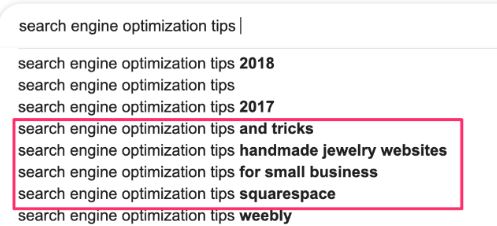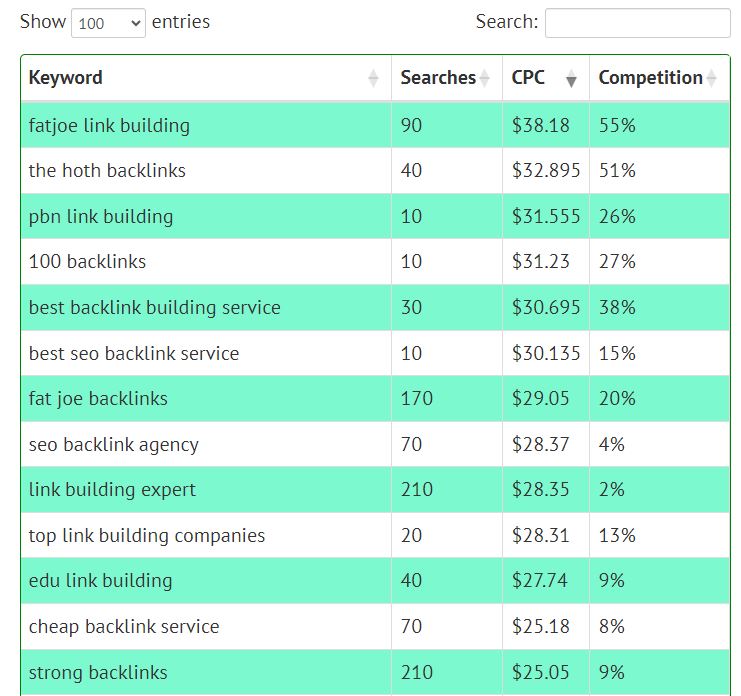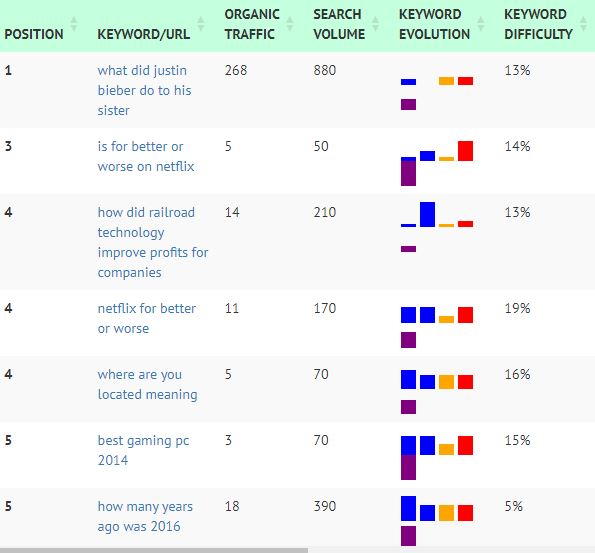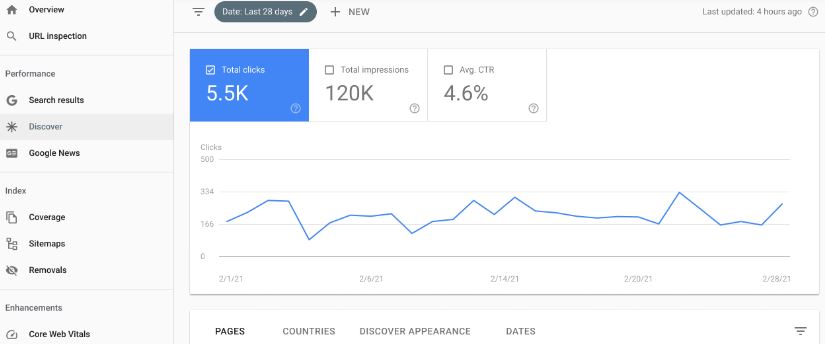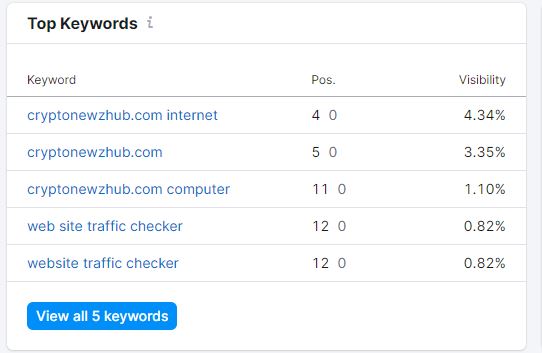
Keyword research is a critical aspect of search engine optimization (SEO) if you want your website pages to appear in search results.
This article will try to explore the best keyword research techniques for beginners, that is, those techniques to find those search terms or phrases that we enter in search engines like Google to make sure the pages of your site are located in the first results. To do this, we will provide knowledge and show what the tools are to effectively identify and target the appropriate keywords for the new content that you have to create on your website.
Understand the importance of keyword research
Keywords are terms or phrases that people type into search engines, like Google, when searching for information about products or services.
If we can find the most appropriate keywords and with less competition within the search engine, we can increase the visibility of our content and obtain more relevant traffic to the pages of our website.
It is important to understand that not only is it important to find keywords with a high search number, we also have to observe, sometimes, within the search engine that there are no more than 10 websites talking about the same topic, and that these sites are sites with a high ranking.
If we find a keyword through some online tool that tells us that it is a keyword with a good number of visits and low competition, it is important to look inside Google page by page within the first 10 results, and first, check that those keywords are found, relatively, in the title of each of those pages. In the event that we do not find the keyword in the title, that is a good sign to investigate within the page and see if it is really talking about that keyword in an extensive way.
Finally, it is important to check the ranking of each of those pages within the search results. We can use the Website Ranking measuring Tool to verify that those pages have a lower ranking than our website, with fewer backlinks and less traffic.
Long-Tail Keywords: The Foundation of Your Strategy
When beginners start keyword research, they often overlook the power of long-tail keywords. These are longer, more specific phrases that visitors are more likely to use when they are about to make a purchase or are looking for specific information.
For example, instead of targeting "shoes,” a long-tail keyword could be “best running shoes for women with high arches”. Long-tail keywords typically have lower search volumes but higher conversion rates, making them valuable for driving targeted traffic to your website.
Use of Keyword Research Tools
Several tools can help beginners with keyword research:
- Lookkle's keyword research tool is especially useful for discovering new keywords related to a specific topic or location. Provides a list of up to a thousand related keywords, each with data on the average number of monthly searches, CPC, and the level of competition within a search engine.
- Keyword Tool and WordStream's Free Keyword Tool are available for generating relevant long-tail keywords and conducting website keyword analysis.
- Google's Keyword Planner is a popular choice, providing insights into search volumes, competition levels, and potential bid estimates for paid advertising.
- SEMrush provides comprehensive keyword data and competitive analysis.
- Ubersuggest is an easy-to-use option that provides keyword suggestions and content ideas based on a seed keyword or domain.
Competitor Keyword Analysis
Researching keywords on competing websites can provide valuable information and inspiration for finding new keywords and content for your website.
With tools like the "Lookkle Organic Traffic Analysis Tool", we can find new keywords that we did not identify with an online tool, and that are giving an amount of web traffic to websites that may be our competition.
By finding the keywords that are giving success to the competition, we can discover new opportunities in our niche, and obtain a new extra number of visitors to our site.
The first thing will be to find who the competing websites are. To do this we can use tools such as "Lookkle Competitor Research". Then we analyze competitor by competitor with the "Organic Traffic Analysis Tool", we collect their keywords with the least competition and the highest amount of traffic, and finally we use them in Google to see who are the sites that occupy the first places.
Finally we try to improve that content by offering something better than what those sites that occupy the first places in Google are doing, and we promote that new content on our social networks and other sites of interest.
Long-term keyword strategy
As a beginner, it is important to find a balance between search volume and competition when choosing keywords.
High-volume web traffic keywords may seem tempting, but they often come with stiff competition that makes it difficult for new websites to rank for them. You only have to take a look at Google to know that those sites that occupy the first places are almost unbeatable sites with a web ranking much higher than ours.
On the other hand, keywords with low competition are easier to classify, but they may have a very limited search volume on Google and give us almost zero traffic to our site.
We should try to use a combination of both types of keywords to create a long-term sustainable keyword strategy, that is, search terms with a good number of visitors and little competition.
Understand User Intent
In recent years, search engines have increasingly prioritized user intent when ranking content.
User intent refers to the reason for a user's specific search query. It can be categorized into informational, navigational, commercial or transactional intent.
If we can match our chosen keywords to the intent behind a user's search, we will be able to create content that better meets their needs and increases our chances of ranking higher in search results.
The power of Content Optimization
Once you have identified your target keywords, it is important to optimize our new content. This involves strategically integrating the chosen keywords into various elements of the page, such as titles, meta descriptions and main content such as the initial part in the introduction of the content and in the headers. That is, we have to try to solve the problem of the search intention in the first lines of the content, within the introduction, and later, continue explaining the treatment of the keyword in a more extensive way, in the case in which the user needs to know more about the topic, through headings that resolve the topic and with links to sites that resolve doubts that we cannot resolve within the text.
It is important to maintain a natural and easy-to-read tone while avoiding excess keywords.
Monitor the results and adjust your strategy
Keyword research is an ongoing process that requires constant monitoring and adjustment. It is advisable to track the performance of your keywords using tools such as Google Analytics and Search Console, or the “Lookkle Organic Traffic Analysis Tool” for the website.
Analyze which keywords generate traffic and conversions and modify the content of those keywords for which we have not obtained good results, modifying the content in a better way by observing the first results of those pages in Google.
It's a good idea to stay up-to-date with trends using tools such as Google Trends, and changes to search engine algorithms to ensure your keyword strategy remains effective.
Conclusion
Mastering keyword research is essential for any beginner looking to create a strong online presence.
We must understand the importance of long-tail keywords, take advantage of the available online tools, use the ones that best suit us, analyze competitor websites and consider user intent. This way, we can develop a solid keyword research strategy.
We must optimize the content of our site in the event that we lose positioning with new content that surpasses that of the competition, and promote it to a greater extent, using social networks and other similar methods.
Tips on SEO and Online Business
Next Articles
Previous Articles
